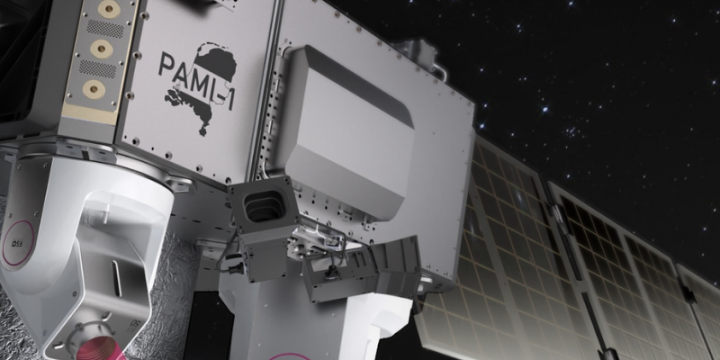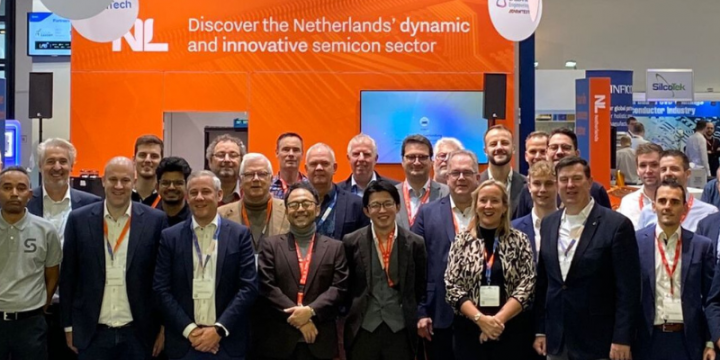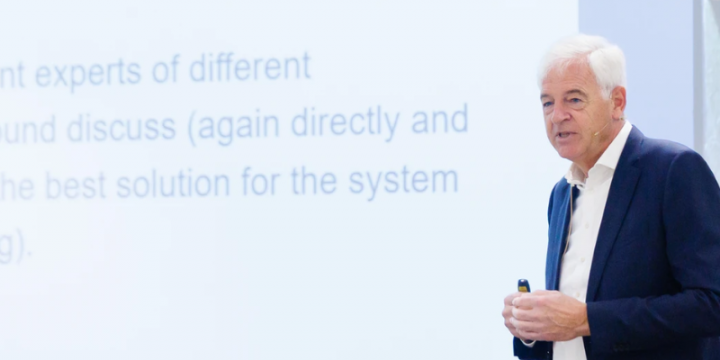NWO awards more than 9.4 million euros to nine innovative PPP research projects around emerging key enabling technologies. These are technologies that are promising in the academic environment and have significant potential for application. These projects enable the public and private partners involved to take the next development step. Consortium partners are still providing more than 1.3 million euros in co-financing.
The exploratory research has been awarded within the call 'Emerging Key Technologies (KIC)'. This call offers space for pioneering PPP research on emerging key technologies, aimed at exploration and development of innovative ideas.
Within the nine allocations, work is being done on the following innovations, among others:
- the development of energy-efficient self-healing AI processors (project: SNS)
- a breast cancer model with which (immuno)therapies can be tested via a chip (project: SMART-ToC)
- metamaterials (project: MetaFlow).
Impactful technology
The aim of the call 'Emerging key technologies' is to create a fertile seedbed for innovative, disruptive ideas. The technology is still so new that its disruptive character has not yet been proven. This type of key technology is at a stage of a broad potential application area, in which several sectors are showing interest to participate. An emerging key technology has the opportunity to grow into a highly impactful technology that can contribute to industrial and/or social impact in the longer term.
Allocations
Below is an overview of the nine assigned research projects:
- SepsPIC: Highly multiplexed photonics integrated circuit (PIC) sensors for the rapid diagnostics of sepsis - prof. dr. S.M. Garcia Blanco, University of Twente
Sepsis is a fatal and complex condition. Current diagnostics are time-consuming and require multiple tests, so doctors often have to make 'educated guesses'. SepsPIC is developing a rapid and accurate device for detecting multiple sepsis biomarkers to better inform physicians and improve patient outcomes.
- Steering Fracture with Metamaterials (FAME): Turning failure into function - dr. C.J.M. Coulais, University of Amsterdam
This project aims to revolutionize breakage control in sectors such as aerospace, automotive, protective equipment and food design. Using millimeter-scale metamaterials, it directs fracture paths rather than preventing them, potentially allowing for controlled failure, increased durability and improved energy absorption. In collaboration with industrial partners, prototypes will be developed for improved safety in vehicles, aircraft, protective equipment and sensory experiences of food products.
- MetaFlow: Metamaterials and bio-inspired sensors to stabilize and monitor fluid flow and flow-induced vibrations - dr. A.O. Krushynska, Rijksuniversiteit Groningen
MetaFlow uses bio-inspired MEMS sensors and elastic metamaterials to actively monitor and control turbulent fluid flows in industrial pipelines. We strive for groundbreaking results for flow control in industry and science, with a demonstration setup and practice-oriented studies.
- SMART-ToC Tumor-on-Chip (ToC) platform incorporating Sensing hydrogel MAtrices – correlating microenvironment and Response to immunotherapy - prof. dr. ir. S. Le Gac, University ofTwente
SMART-ToC is developing an advanced breast cancer model in on-chip format for animal-free testing of (immuno)therapies. Our model reproduces and measures important tumor environmental factors, missing in current approaches, using an innovative three-dimensional multicellular culture. The transdisciplinary team aims to develop cancer therapies and personalized medicine for societal benefits.
- Disruptively green neuromorphic scientific computing leveraging stochasticity - dr. J.H. Mentink, Radboud University of Nijmegen
Neuromorphic computers have the potential to drastically reduce the energy consumption of computer systems. This interdisciplinary project investigates new algorithms and materials for potentially disruptive applications of neuromorphic hardware. Exploiting inherent stochastic effects instead of circumventing them makes possible large-scale computer simulations that are currently practically impossible.
- Nano-Chemical Biomarkers of Molecular Mechanisms and Nutritional Factors in Cognitive Ageing and Neurodegeneration (NanoNU-Marker) - dr. F.S. Ruggeri, Wageningen University & Research
NanoNu-Marker takes up the scientific and societal challenge to develop, combine and apply innovative experimental and digital technologies to identify novel biomarkers at the nanoscale of cognitive decline, and to investigate the molecular links between protein aggregation and human nutrition/lifestyle to unravel the socio-economic impact of dementia and neurodegeneration on the aging global population.
- Accelerating Rarefied Gas Dynamics - prof. dr. F. Toschi, TU Eindhoven
This project improves computational fluid dynamics for science and systems development. We combine data-driven and model-driven methodologies for accuracy and computational efficiency. Commercial partners provide validation with lower computing requirements. The impact extends beyond fluid mechanics to other scientific areas.
- IMAGINE: In-material sensing, learning and computing - prof. dr. ir. W.G. van der Wiel, University of Twente
IMAGINE, a 4-year project in collaboration with UT, TU/e, Toyota and IMEC, focuses on the development of energy-efficient AI hardware. By using silicon nanodevices as compact non-linear processors in regular semiconductor technology, combined with analog and digital electronics, a versatile and energy-efficient platform is created for local information processing. This reduces energy consumption during data transmission to the cloud and offers significant benefits for vision-based AI applications, such as in the automotive industry.





